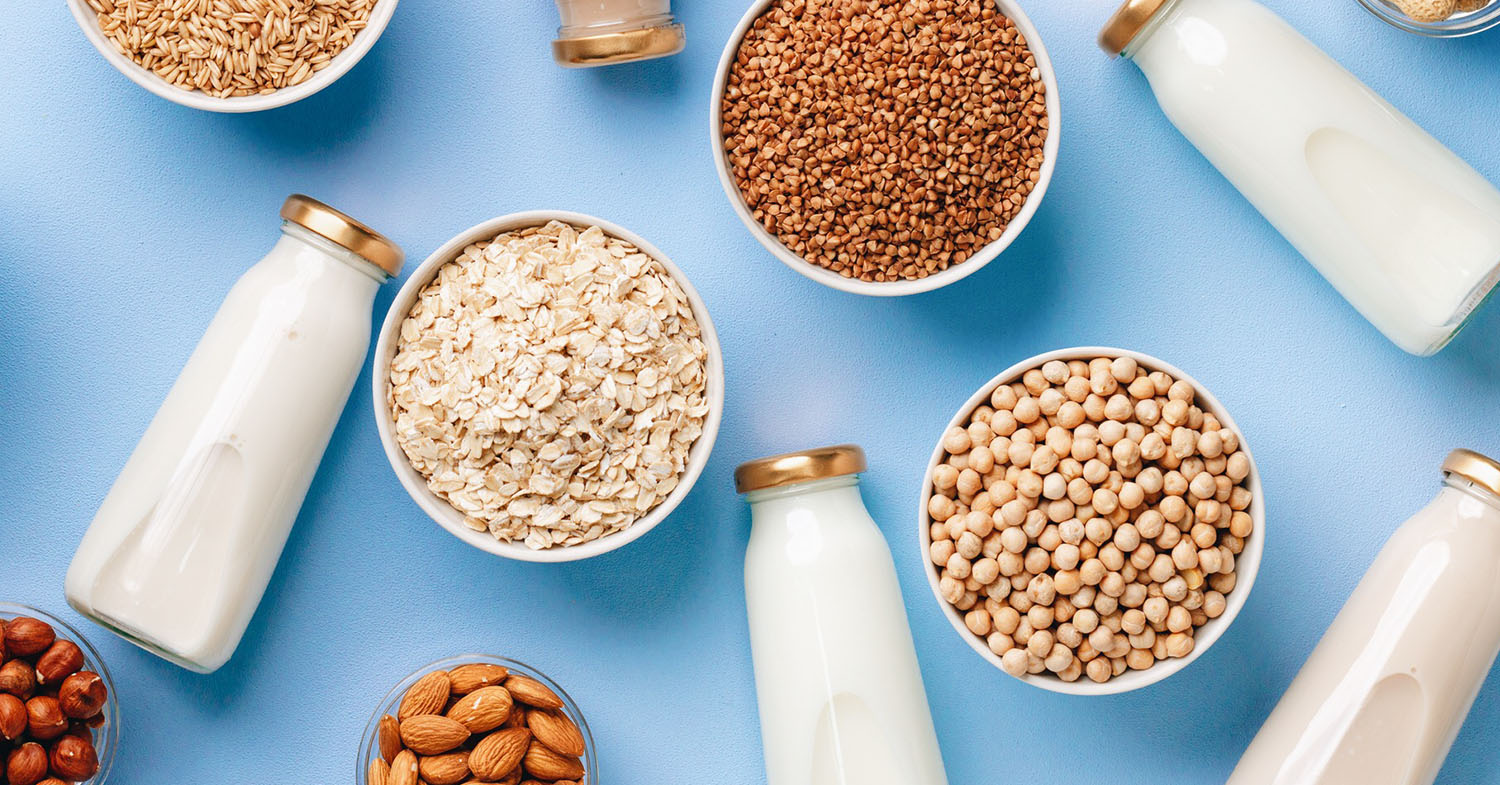Cow milk or Plant protein, which is more healthy?
The cow has always been the source of many wonders, with its meat and skin are used for clothes, shoes, belts, and other daily necessities. Its milk is also one of the most consumed drinks in the world.
Yes, this is true that it has numerous uses but at the same time does cause several diseases as well if an excess of everything is consumed.
The question that arises on almost everyone's mind these days is which of the two popularly known sources, cow or cow milk or plant milk, is beneficial to one's health.
This Cow Milk or Plant Protein article will highlight some of the primary differences between plant and animal milk to help you choose wisely.
Let's Understand the fundamental differences between Cow Milk Protein and Plant Milk Protein.
Cow Milk Protein -  Milk as we all know is a creamy white liquid produced by the mammary glands of mammals. Milk within the mammary gland is mostly a watery liquid called whey, but it contains many proteins and hormones. The Cow milk proteins are casein and whey.
Milk as we all know is a creamy white liquid produced by the mammary glands of mammals. Milk within the mammary gland is mostly a watery liquid called whey, but it contains many proteins and hormones. The Cow milk proteins are casein and whey.
Plant Protein Plant-based milk is a beverage made from soybeans, almonds, rice, and coconuts. These beverages can be consumed as an alternative to cow's milk and other animal-derived milk such as goats and sheep. Although the term "plant milk" may refer to any non-animal milk product or by-product, this article will focus on the unsweetened and unflavored varieties.
Plant-based milk is a beverage made from soybeans, almonds, rice, and coconuts. These beverages can be consumed as an alternative to cow's milk and other animal-derived milk such as goats and sheep. Although the term "plant milk" may refer to any non-animal milk product or by-product, this article will focus on the unsweetened and unflavored varieties.
The two main types of milk substitute products on the market today come from almonds and soybeans. Some popular certified brands include Almond Breeze, Califia Farms, Silk, Delicious Dairy Free, and Almond Dream. One of the biggest reasons some individuals choose plant-based alternatives is for health reasons such as lactose intolerance or a vegan lifestyle.
Cow's milk has more benefits than plant-based products do, but not all of them are good for you. While cow's milk is packed with protein and calcium, plant-based products have a lot of added sugars. There are fewer calories in plant-based products, but the difference is very little because one cup of whole milk has 149 calories while unsweetened almond milk has 30 calories.
Cow's milk has 8 grams of sugar while almond milk has 6 grams, but 6 of those 8 grams are added sugars, while the 6 grams in almond milk is only naturally occurring. Cow's milk also has no protein compared to almond milk which has 1 gram of protein per cup. However, one cup of cow's milk provides 8 grams of protein.
The ratio for calories to protein is also much different. For every 100 calories in cow's milk, there are 8 grams of protein, while for almond milk, there is only 1 gram of protein per 100 calories.
Dairy products have three times fatter than plant-based products do when it comes to fat content. Cow's milk contains 6 grams of saturated fat, while almond milk has 1.5 grams of saturated fat.
One cup of cow's milk has 33% DV (daily value) for calcium, vitamin D, and potassium, while almond milk only contains 1-2% DV for those nutrients.
Cow's milk contains 30 IU (international units) of vitamin D while plant-based products have 0 IU, and cow's milk has 10% DV for vitamin D while plant-based products have 0%.
Cow's milk also contains 25% DV of calcium, 50% more than almond milk. One cup, i.e., 250ml of almond milk, only contains 1 gram of calcium which is 4% DV.
Plant-based products are better options if lactose is intolerant or vegan because there is no dairy. However, it is good to know about added sugars and lower amounts of vitamins and minerals compared to cow's milk.
Overall, cow's milk is better than plant-based products because it has more calcium, vitamins, and minerals than plant-based products do. However, plant-based products are great options if lactose is intolerant or vegan.





